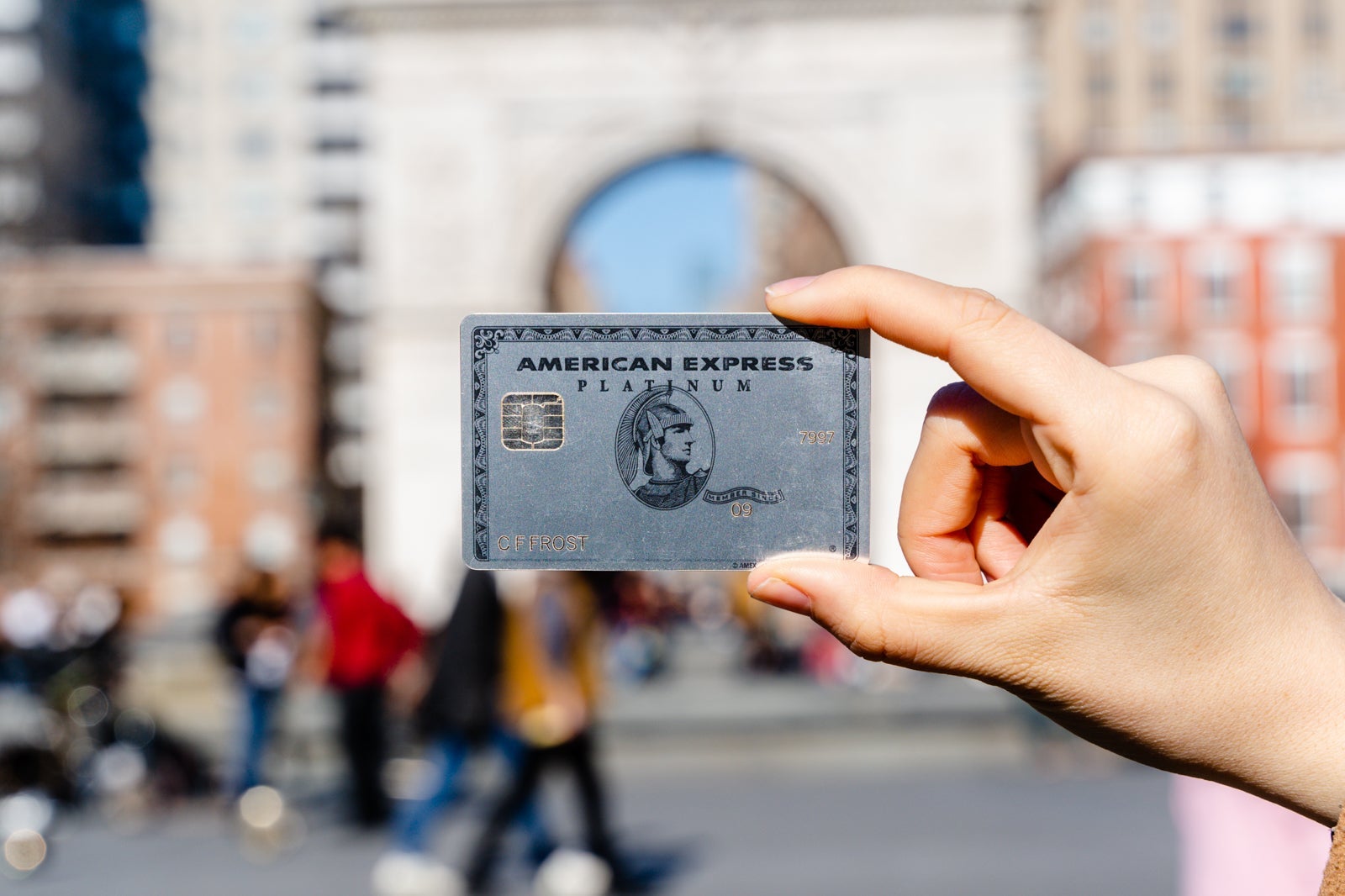Why Amex should change its airline fee credit right now -- and how they can do it
Update: Some offers mentioned below are no longer available. View the current offers here.
Appetite for travel is beginning to reemerge, but that doesn't mean everyone is ready to leave and explore just yet. People are changing how they travel for the short to medium term and funneling more of their spending towards non-airline transportation (myself included).
Some of the major credit card issuers -- including Amex, Citi, and now, Chase -- have made travel-heavy cards more usable at a time when, well, travel isn't so heavy. For two of these issuers, that includes allowing travel credits to be used on non-travel purchases.
However, there's an odd man out: American Express.
Related: The Amex Gold will need to offer some temporary perks to convince me to renew
Amex's already restrictive airline-fee credit has always been more difficult to use than the equivalent "travel" credit from both Chase and Citi. Will that change now, in the midst of the coronavirus pandemic? Amex hasn't shown many signs it will, but here are four reasons why it should.
For TPG news and deals delivered each morning to your inbox, sign up for our daily newsletter.
[table-of-contents /]
Travel and airline credits, at a glance
The major trio of issuers -- Amex, Citi, and Chase -- each have at least one consumer premium card in their lineup with an annual fee of $450 or higher. Each card also comes with an annual travel credit to help offset the annual fee.

- The Platinum Card® from American Express (up to $200 airline-fee statement credit)
- Citi Prestige® Card ($250 general travel credit)
- Chase Sapphire Reserve ($300 general travel credit)
The information for the Citi Prestige card has been collected independently by The Points Guy. The card details on this page have not been reviewed or provided by the card issuer.
All but one card has made it easier to use that credit in light of the coronavirus pandemic and the restrictions on travel: the Amex Platinum.
Amex needs to catch up to Chase and Citi

Both Chase and Citi have expanded their (already broadly defined) travel credits to include common spending categories like dining, grocery stores and restaurants.
Chase Sapphire Reserve: Through Dec. 31, 2021, Chase Sapphire Reserve cardholders can use their $300 travel credit toward grocery and gas purchases. From now through Dec. 31, 2021, Sapphire Reserve cardholders will get up to $120 in statement credits to cover monthly Peloton Digital ($13) and All-Access ($39) memberships.
Citi Prestige® Card: Through the end of 2020, Citi Prestige cardholders can use the up to $250 travel credit at supermarkets and restaurants.
Both Chase and Citi already had a fairly generous interpretation of the travel credit to begin with, including airlines, hotels, Airbnb, Uber, transit, and much more. Now, these changes expand the credit's possibilities even further to include essential, everyday spending categories.
Most importantly, these moves instill confidence in current cardholders that they'll be able to use up their annual credits despite the potential reluctance to travel.
Related: Credit card benefit changes you need to know about
Airline fee credits are (mostly) useless if you're not flying
Flying is not on everyone's radar right now. And that's okay. However, the obvious must be said: it's hard to use an airline fee credit if you're not taking to the skies.
Amex's airline fee credit has also always been the most limiting of the bunch, with only airline incidental fees triggering reimbursement.

That means you (typically) cannot get compensation for buying an airline ticket for the future, but you can use the $200 credit toward things such as seat selection fees and checked bag fees. That isn't super helpful at the moment, especially if you're not comfortable flying for the rest of 2020. Reimbursement is also reliant on merchants to properly code transactions.
Related: What still triggers the Amex airline-fee reimbursement?
Besides the personal Amex Platinum, these cards also offer an annual airline fee statement credit:
- Hilton Honors American Express Aspire Card (up to $250)
- The Business Platinum Card® from American Express (up to $200)
The information for the Hilton Aspire Amex card has been collected independently by The Points Guy. The card details on this page have not been reviewed or provided by the card issuer.
Give cardholders confidence by making benefits relevant
Cardholders will stay more loyal and use a card more often if it's relevant to their needs. In the shorter term, this can easily be done by making credits more versatile.
This doesn't just apply to the Amex Platinum, but also to cards like the Hilton Aspire and the American Express® Gold Card. While the Aspire's up to $250 Hilton resort credit was made more flexible -- applicable towards U.S. restaurants, including takeout and delivery this past summer.

Similarly, the Amex Gold Card hasn't had any COVID-related updates whatsoever. However, since that card is heavily skewed towards bonuses on restaurants and groceries at U.S. supermarkets already, I can also see why Amex has been reluctant to make moves.
I'd love to see the Amex airline credits to be able to be applied to bonus categories such as groceries, restaurants, or even something like Amazon. There's no need to reinvent the wheel with new categories. Even the same bonuses from Chase or Citi would do wonders in making the credit more flexible -- and usable.
Longer-term, Amex should reconsider the entire concept of an airline fee credit and just make it what we all want it to be -- a general travel credit.
Bottom line
There is no question Amex has made significant strides to make its premium travel-focused cards more appealing in the current environment. The limited-time perks are generous and may convince cardholders that were on the fence about paying hefty annual fees to keep their cards.
However, Amex's reliance on built-in credits -- including narrow ones like the airline-fee credit -- has always been a weak point of the issuer's most premium cards. Now is the perfect time for Amex to buck that trend, follow Chase and Citi's lead, and widen the usage of its travel-related credit.
Kudos to Chase and Citi for smartly stifling any potential anxiety about whether or not you can use all your credits. Now, I'm just hoping Amex will do the same.

